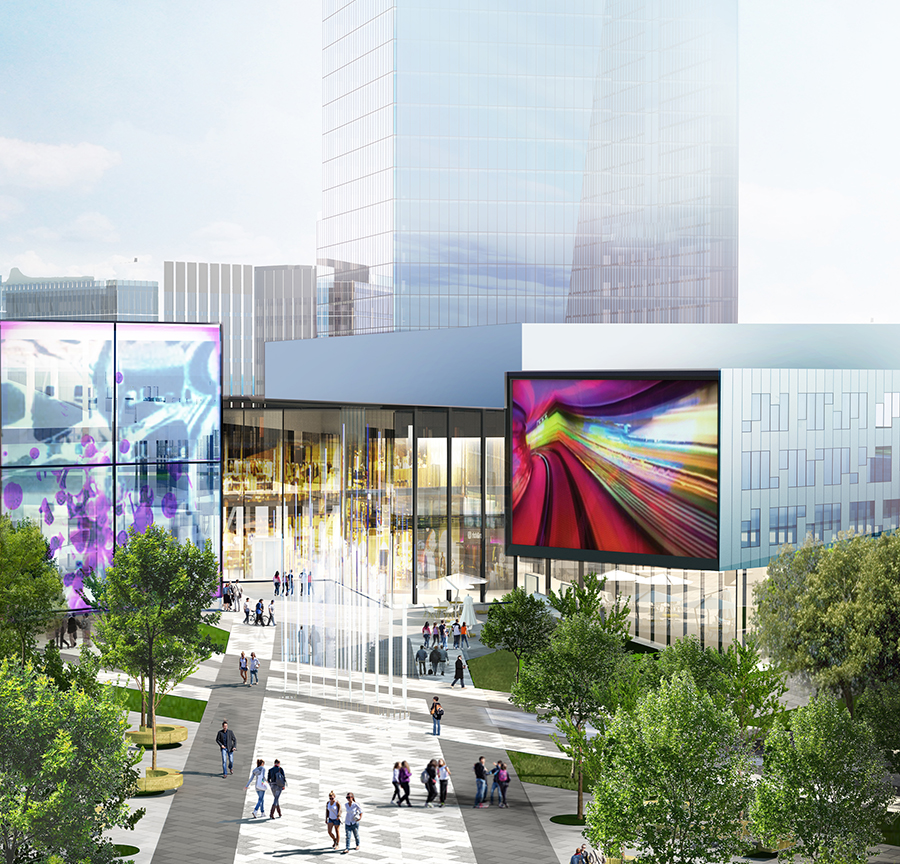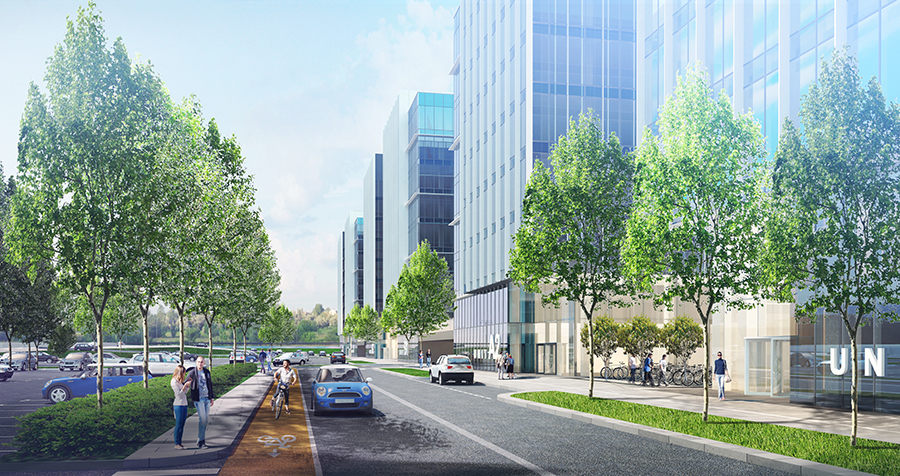
Galereja Centre has been working for nearly two decades developing commercial real estate projects, both independently and alongside domestic and international partners. Now it is taking that experience and applying it to a massive new project. As the main developer and an investor in Ukraine’s largest real estate project since independence – Lviv’s Innovation District IT Park – it is moving to the next level. Looking to capitalize on Lviv’s advantages as an IT hub and provide a much needed multifunctional working space for local and international companies, this project is set not only to revolutionize the Western Ukrainian city but the entire IT scene in Eastern and Central Europe. Its 10 hectares of land will accommodate 10,000 IT specialists and dozens of companies, while also providing a world-class working environment for the rapidly growing industry
Galereja Centre is a developer and investor in the 10-hectare Innovation District IT Park. What convinced you to get involved in the project?
I’m in real estate development and commercial real estate. We’ve been in real estate for more than 17 years and have worked a lot in the Lviv region. We’ve done over 60 projects with petrol stations, and our biggest project so far has been a shopping mall, which we did together with our Dutch partner, Multi Development. We’ve also worked with a Swedish company to build a private hospital and clinic in Lviv. Now, the biggest challenge is the implementation of this IT park project. It’s the biggest real estate project in Ukraine since independence. It’s ambitious, but our ambitions are validated by many factors. The IT sector is developing very quickly with 25-30 percent growth each year. In the past, IT companies would compete with each other to attract talent, using wages, perks and bonuses to get the best employees. But now, IT companies have reached such a level that they need to create the best conditions for their employees. That’s why when we finished the shopping mall in 2015, I thought this would be an interesting type of project. The IT Cluster had the same idea and since we were capable of doing it, it was clear that we should cooperate. We signed an agreement with the IT Cluster, and I hired a very respectable architectural company, which has experience in similar projects around the world, to come up with the concept. It’s a multifunctional office space, a city within the city, or the new Lviv city center. It will have gyms, supermarkets, a language school, many green areas, an open amphitheater, and it’s in a fantastic location near the Catholic University, which is a partner with us as well. The IT Park will have a tech lab for students from the whole city of Lviv.
Once the concept was in place, I talked to investment banks about financing. But the European Investment Bank and the European Bank for Reconstruction and Development (ERBD) both added the condition that we had to find a partner. So we went looking for one and Horizon Capital helped a lot in this. Its CEO called the ambassador of Canada, who was in Lviv for the jazz festival, and he liked this idea too. A month later, I got a phone call from Canada – from Brookfield, which is like the Rolls Royce of real estate. I could hardly believe it at first, but step by step, Brookfield came to like this project too. The business model is sound – we want to rent offices and earn money. And because the tech industry is growing at such a spectacular rate, it needs space. And because they have international clients, they tend to earn everything in dollars, which provides more stability.

Will you have to build in phases?
The first stage is implementation, which will be 110,000 square meters of office space. We have enough space to build two additional towers with an additional 70,000 square meters. I think that with the help of our partners, who also have a lot of experience in implementation, we are creating an IT hub for Central and Eastern Europe. The IT sector also creates a lot of additional spin-off in the local economy.
Who will be renting space?
The biggest IT companies that are already here like GlobalLogic, SoftServe, Intellias and more. But we will see small companies there, and we also want to see other large companies like Deloitte, PwC and so on. Plus, of course, German companies; we could have small share offices for Lufthansa or Nestle, for instance. We don’t have a place to invite them to yet, but when we build this, it will be highly attractive for those companies to set up offices.

Why might a German IT company consider setting up in Lviv?
Lviv was in the Soviet Union for only 40 years. The infrastructure we have here and the architecture is mostly Western influenced. Wherever you go, you will see and feel it. When you walk the streets, it’s totally European. This is a very important point because many people in Germany probably think that it’s more Russian here than it is. We have good beer, good food and, most importantly, normal, literate and highly qualified people. I would tell companies not to be afraid. In Scandinavian countries, there’s a big problem in finding qualified workers. Here, we have 4,000 students graduating from university IT programs annually. Our main advantage is our people, and this place is created for our people to work here.